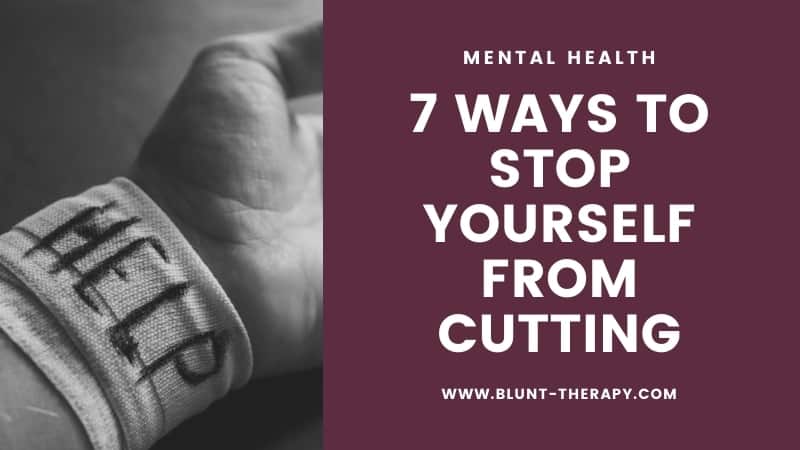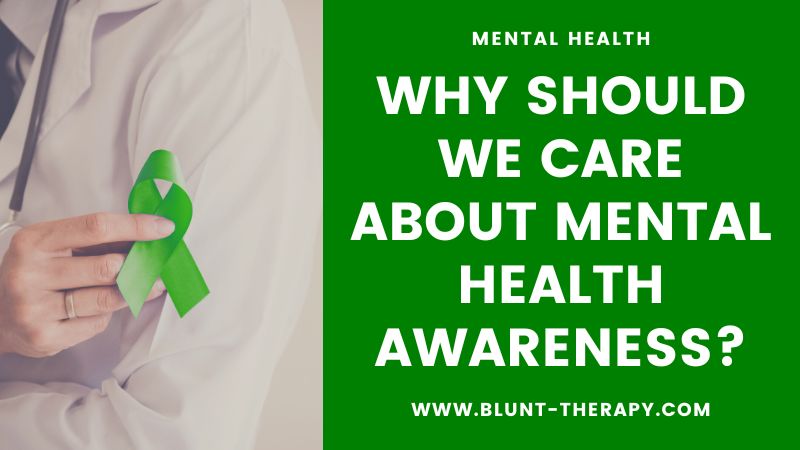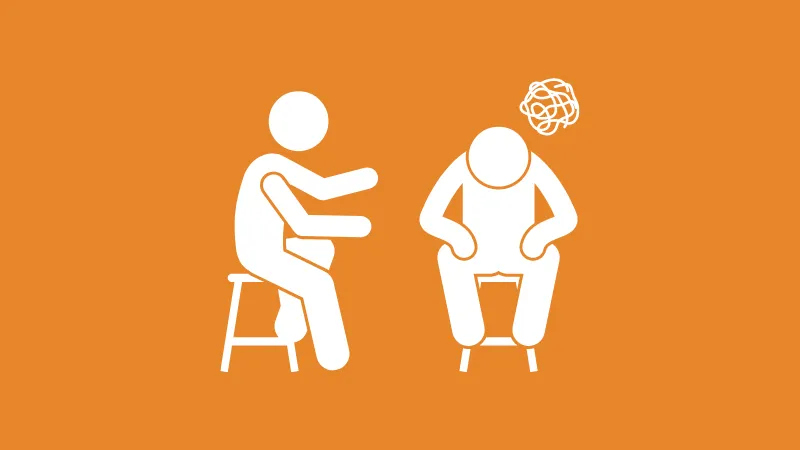Table of Contents
Affiliate link notice: As an affiliate of BetterHelp and other third-party vendors, We will receive compensation if you make a purchase using the links provided on this page. For more information, visit our disclosure page.
Last Updated on May 1, 2023 by Randy Withers, LCMHC
Eating disorders are serious – and potentially life-threatening – diseases that can affect anyone, regardless of gender, race, age, or ethnicity. The symptoms and warning signs surrounding eating disorders can be difficult to identify, and often only become apparent when the disorder has progressed to a severe level.
Eating disorders affect teenagers (13-18) more often than any other age group, with more than two-thirds of cases occurring in young women. Many teenage eating disorder statistics cite studies where approximately 3% of individuals between 13 and 18 had identifiable symptoms. Still, other studies claim that as many as 6% of teenagers are affected by an eating disorder.
That equates to more than 1.5 million people.
Eating disorders in teens are far too common. Let’s take a look at what they are, how to spot them, and what to do about the problem.

What Are the Most Common Eating Disorders in Teens?
Understanding eating disorders in teens can be challenging if you are unaware of the differences between these conditions. There are many universal symptoms shared among these disorders, beginning with an abnormal view or behavior surrounding food.
Because of variances in a person’s surrounding environment and genetics, the exact cause of an eating disorder is difficult to pin down. It’s always better to seek help sooner rather than later to avoid the severe complications that can result from an eating disorder.
Anorexia Nervosa
Anorexia nervosa is a condition many people think of when they hear the term “eating disorder”. Teens with anorexia nervosa often fear gaining weight and, as a result, enter a cycle of self deprivation and restrict their body’s access to vital nutrients and calories.
Fixation with losing weight and body image is one of the most common symptoms of anorexia nervosa, and often leads to more severe physical symptoms. These physical symptoms include dramatic weight loss, dizziness or fainting, and reduced immune system effectiveness.
Everything from online media to social pressure to diet culture can affect the development of anorexia nervosa. Photos, images, or videos that create an idealized version of the human physique often generate interest in dieting and health maintenance, but if interest in maintaining a thin appearance goes too far, anorexia nervosa may be the resulting condition. Prevalence rates for anorexia nervosa are significantly higher in young women between 12 and 18 than in any other age or gender category.
Bulimia Nervosa
Bulimia nervosa is an eating disorder centered around binge-eating and subsequent purging. Binge eating occurs when an individual eats an enormous amount of food within a short time window or continues to eat throughout the day in significantly higher quantities than average for their weight, age, and gender. In many cases, individuals who experience incidents of binge eating report feeling their eating habits were out of their control.
This loss of control surrounding food can result from various mental health concerns, including depression, low esteem, or personal health perception. Like anorexia nervosa, stress, a traumatic incident, or social surroundings can generate bulimia nervosa or make it more severe.
Bulimia nervosa often creates strong feelings of shame or depression following an incident of binge-eating that causes purging behavior. This behavior is often characterized by self-induced vomiting, but may also lead to extreme dieting or exercise, similar to how someone with anorexia nervosa might respond to eating.
Bulimia can affect anyone regardless of weight, gender, or age, but may result in extreme weight loss, similar to the outcomes of anorexia nervosa. The weight changes a person with bulimia might experience can cause many health concerns, such as stomach cramps and autoimmune impairment.
Binge-Eating Disorder
Binge-eating differs from bulimia nervosa in its lack of purging behavior. Whereas bulimia nervosa may cause the affected person to fluctuate in weight and caloric intake, a binge-eating disorder is likely to generate rapid unhealthy weight gain.
Binge-eating disorder is the most common eating disorder among adults in the United States, but can affect teenagers in equal measure.
Binge-eating disorders often cause the affected individual to eat when they aren’t hungry, and oversupply their system with calories, fat, and other unhealthy food products. This can cause intestinal pain, cramping, or the feeling of being distressingly full.
In a similar fashion to someone who has developed bulimia nervosa, the affected individual may feel their eating habits are out of their control. Binge-eating often results in feelings of guilt or depression, and can have serious mental side effects beyond the eating disorder itself.
Eating Disorder Risk Factors
Eating disorders in teens may develop from various external or internal factors. Most of the time, the development of an eating disorder does not result from a single source. Everything from dissatisfaction with body image to a traumatic event can contribute to a teenager developing an eating disorder.
Family History and Genetics
Certain individuals may be predisposed to eating disorders at higher rates or in increased severity compared to others. If a parent or close family member has experienced a similar condition, it’s important to educate yourself and your family about the common symptoms and mental health conditions related to eating disorders.
As inconvenient as it is to stay, if you have family members who struggle with obesity, they may very well struggle with undiagnosed eating disorders – particularly binge eating. Many Americans have an unhealthy relationship with food. If you’ll pardon the expression, it’s an important topic to bring up at the dinner table.
Trauma, Embarrassment, or Life Changes
A traumatic or highly embarrassing event involving food or eating in front of others is often a contributing factor in the development of an eating disorder in teens. Alternatively, this embarrassment or traumatic event may center around body image or personal health routines.
In some cases, the mental impact of a traumatic or embarrassing event may increase if the individual also suffers from social anxiety.
It’s important that trauma is often in the eye of the beholder. Life-threatening traumas, such as car accidents or assaults, may be easier to spot than “less” traumatic events such as cyberbullying or a parent’s divorce. But everyone reacts to trauma in their own way, so parents should remain vigilant.
Dissatisfaction with Weight or Appearance
Negative perceptions of personal weight or appearance can be a driving factor in creating mental fixations on weight loss and dieting. This dissatisfaction often occurs in teens due to the social environment in school, online media, or peer pressure.
As with trauma, appearance is also perceptional. Just because you think your teen is gorgeous does not mean they share that belief. Be on the lookout for teens who have a poor or unstable body image.
What Treatment Options are Available for Teen Eating Disorders?
Anorexia nervosa, bulimia, and binge-eating disorder can all carry severe mental and physical side effects. If you or your teenager is developing irregular habits surrounding food, such as binge-eating, extreme dieting, or purging, do not hesitate to reach out for medical assistance to discuss treatment options.
In most cases, the best thing to do is schedule an appointment with your teen’s primary care physician. Eating disorders in teens (as well as adults) can be fatal if not treated, so a medical evaluation is both wise and warranted.
Your doctor’s office will likely be able to refer you to a treatment provider if additional care is required. Your health insurance company can also be a good source of information for referrals in your network.
Cognitive-behavioral therapy (CBT) is often the most effective care option and can help restore mindset and physical response to eating. CBT is widely used by mental health professionals all over the world, but it is wise to seek treatment from a clinician trained to diagnose and treat eating disorders.
CBT is not the only option to consider. Several other treatment interventions have been shown to work with eating disorders, including:
- Acceptance and Commitment Therapy (ACT)
- Enhanced Cognitive Behavioral Therapy (CBT-E)
- Cognitive Remediation Therapy (CRT)
- Dialectical Behavior Therapy (DBT)
- Family-Based Treatment (FBT)
- Interpersonal Psychotherapy (IPT)
Keep in mind that you don’t have to figure out which one works best. A licensed mental health professional will perform the initial assessment and make the appropriate recommendations.
Many providers work with eating disorders on an outpatient basis, but it’s important to let the professionals guide you to the right treatment. Sometimes, an inpatient or residential treatment program is appropriate for teenagers with severe eating disorders.
Final Thoughts
Eating disorders are a serious matter. They are also incredibly common. If you suspect that your teen struggles with anorexia, bulimia, or binge eating, don’t wait for the problem to go away on its own. It probably won’t.
Treatment can be successful with awareness of the problem, family support, consistency, and a willingness to do whatever is necessary to overcome it. Take the first steps to recovery today. Have a frank conversation with your child, let them know you are there to help, and schedule an appointment with their doctor to start the process. Help is on the way.
Resources
- Eating Disorders Helpline | Chat, Call, or Text | NEDA
- Eating Disorders Coalition
- National Eating Disorders Association
- F.E.A.S.T. (Families Empowered and Supporting Treatment of Eating Disorders)
- NEDA (National Eating Disorders Association) Parent Family and Friends Network









